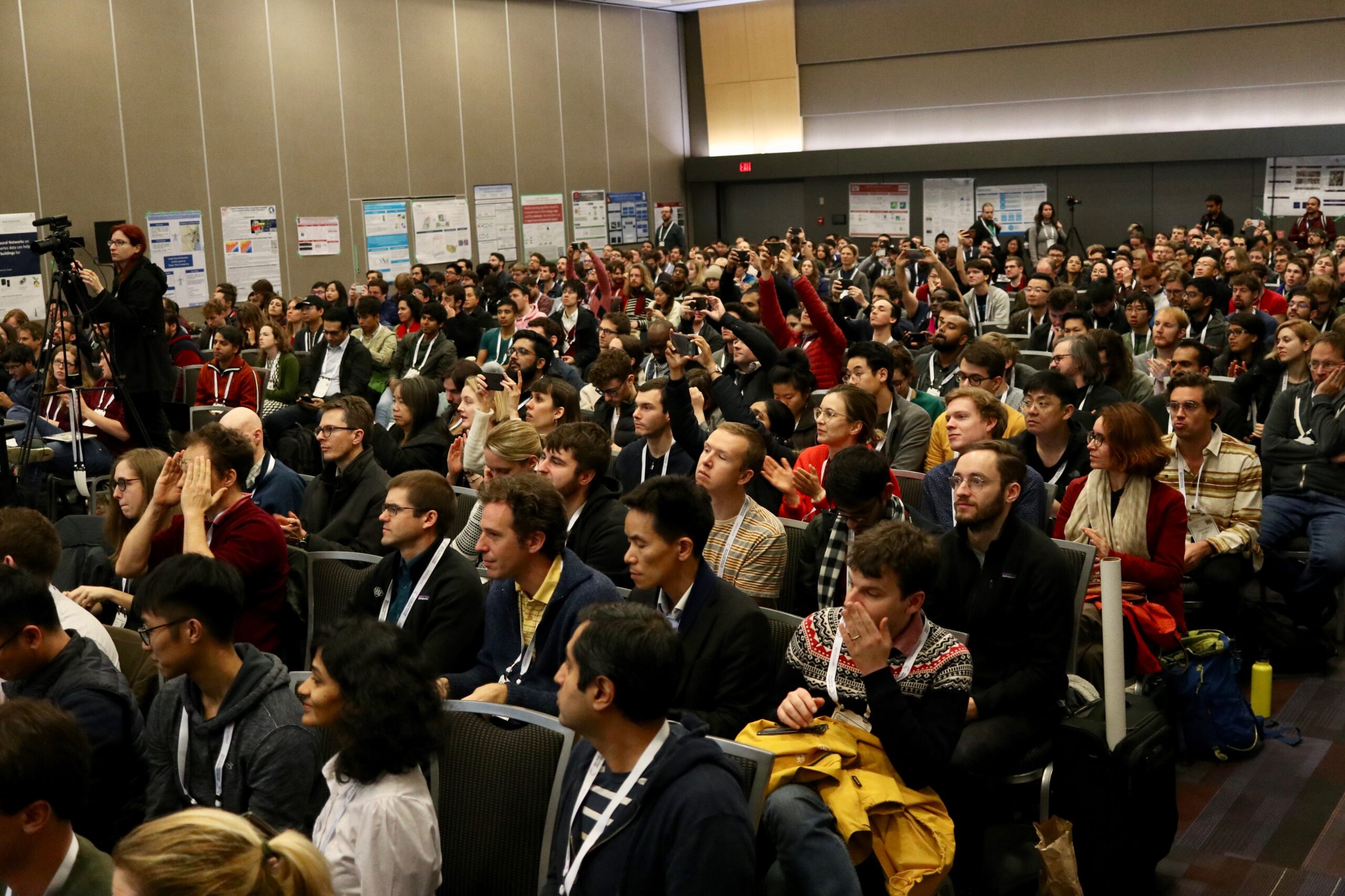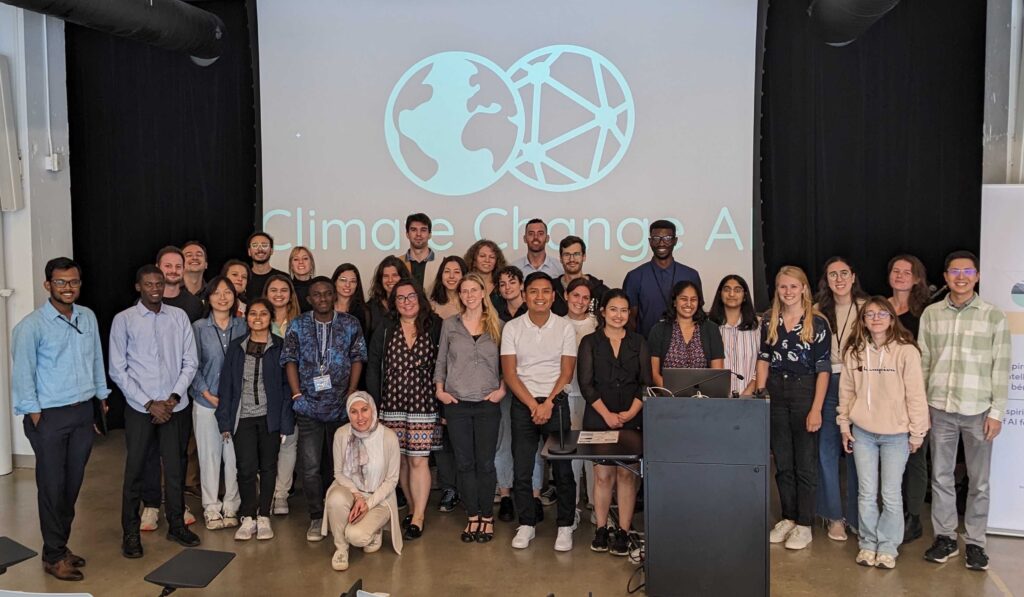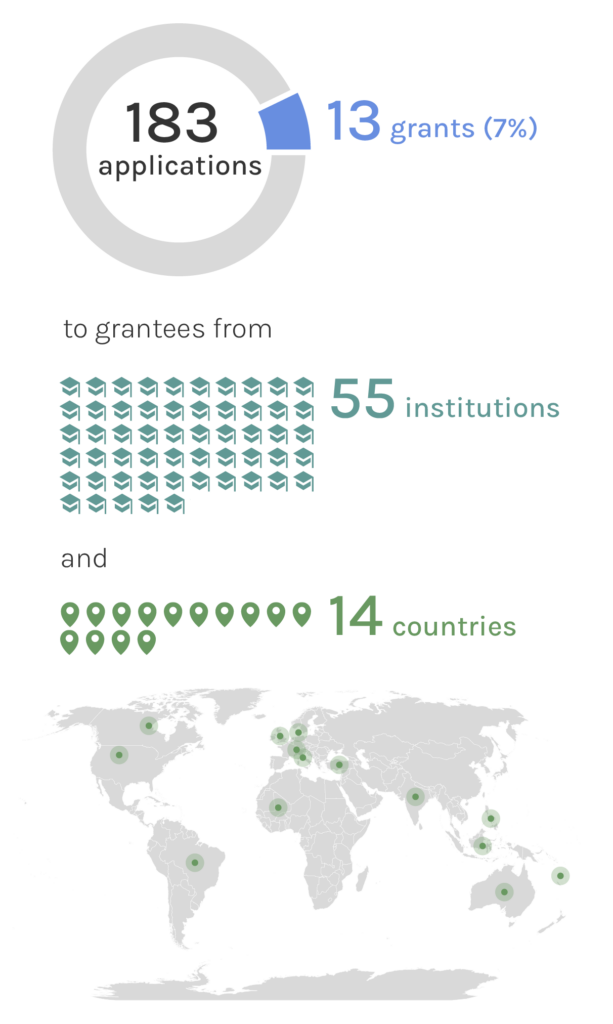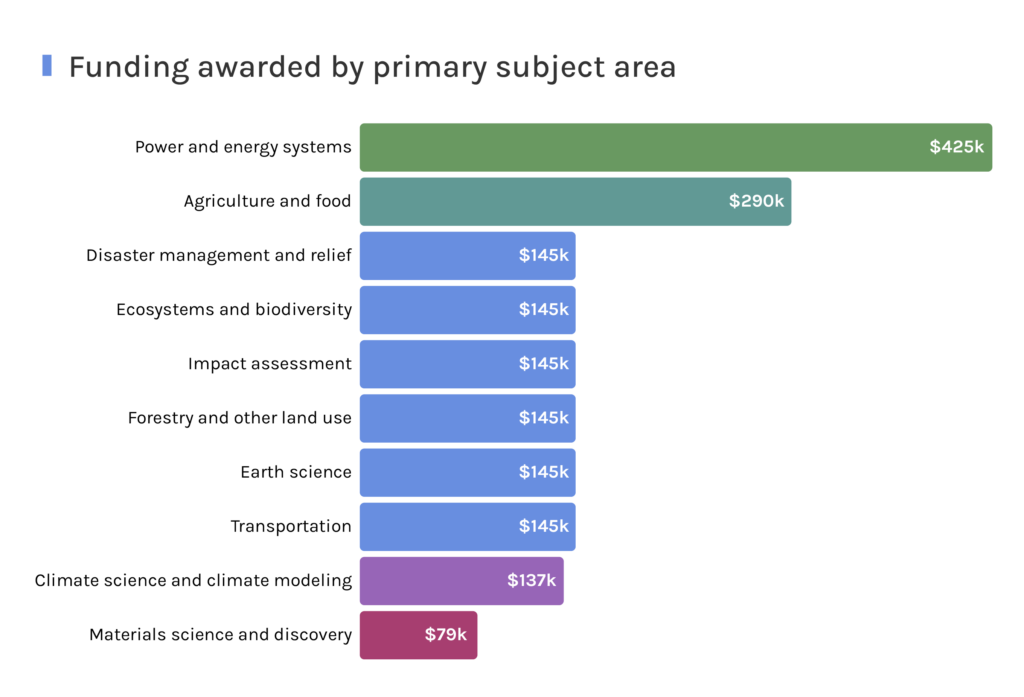Climate Change AI
Climate Change
September, 2023


Author: Priya Donti is the co-founder and Executive Director of Climate Change AI (CCAI), a global nonprofit initiative to catalyze impactful work at the intersection of climate change and machine learning. She is also an Assistant Professor at MIT EECS, where her work focuses on physics-informed machine learning for forecasting, optimization, and control in high-renewables power grids.
Author: Maria João Sousa is the PiTech Startup Postdoc and Chair and Incoming Executive Director at Climate Change AI, a nonprofit startup that catalyzes impactful work at the intersection of climate change and machine learning, which is incubated at Cornell Tech’s Public Interest Technology (PiTech) initiative in the Runway Startups Program.
Climate Change AI (CCAI) is a nonprofit startup that empowers a global community of innovators, practitioners, and decision-makers to accelerate responsible climate action through the use of artificial intelligence (AI). Since its founding in 2019, CCAI has been instrumental in establishing climate change as a key area of impact for AI and has inspired, informed, and connected thousands of stakeholders through networking and knowledge-sharing events, summer schools and other educational programs, international policy reports, and multimillion-dollar global grants programs.
CCAI is now scaling its impact thanks to support from the Jacobs Institute through the Public Interest Technology (PiTech) Initiative and the Runway Startup Postdoc at Cornell Tech, a PIT-UN Member.
Funding from the PiTech Runway Startup Postdoc program has supported both Priya Donti (a CCAI co-founder) and Maria João Sousa (CCAI’s executive director), the authors of this article, as they seek to transfer the skills and knowledge developed through their doctoral programs to the social impact space.
AI and machine learning are key enabling technologies for many climate change strategies and can help accelerate positive climate action when applied responsibly in partnership with relevant stakeholders. However, gaps in expertise, education, coordination, and infrastructure preclude this potential from being realized at scale across the research-to-deployment pipeline. CCAI aims to fill these gaps through expert-driven thought leadership and by building a global community bridging the academic, private, and public sectors.
CCAI was founded by three world experts in AI and climate change, David Rolnick, Lynn Kaack, and Priya Donti, the lead writers of “Tackling Climate Change with Machine Learning.” The report provided a comprehensive overview of applications where AI could impactfully and responsibly accelerate climate progress, effectively launching the field of climate change and AI.
CCAI’s flagship programs are largely run by a dedicated team of volunteer experts in various domains of AI and climate change domains. Hailing from five continents, they represent a breadth of experience across academia, industry, and public policy. A small core staff supports a network of over 50 volunteers prototyping and launching programs, developing novel resources and tools, and creating new communication platforms to connect and engage the global community.
CCAI flagship programs
Tackling Climate Change with Machine Learning workshop series

This workshop series has been developed and iterated at premier machine learning conferences such as the Conference on Neural Processing Systems (NeurIPS), the International Conference on Machine Learning (ICML), and the International Conference on Learning Representations (ICLR).
The workshops provide a forum for those interested in using machine learning (ML) to tackle climate change, and they foster cross-pollination between ML researchers and climate experts. Now preparing for its ninth edition at NeurIPS 2023 on Dec. 16, the workshops have already engaged researchers, practitioners, and policy experts from over 60 countries, leading to 600 workshop papers, proposals, and tutorials on climate change applications using AI in such areas as power and energy systems, agriculture, forestry, biodiversity, transportation, and buildings and cities. They are available through an easily searchable database, and authors can publish in other journals afterwards. CCAI is also partnering with the journal Environmental Data Science (Cambridge University Press) on a special issue featuring papers from the 2022 NeurIPS workshop.
CCAI Summer School
To expand and diversify the talent pool of the growing AI and climate change sector, CCAI established a first-of-its-kind program for a global audience. The CCAI Summer School aims to democratize education at the intersection of AI and climate while training the next cohort of global leaders who will catalyze this work across many sectors and fields.

The inaugural 2022 summer school received over 1,000 applications and guided 76 participants from 33 countries through lectures, tutorials, and collaborative project-based work. The first summer school was conducted entirely online.
This year, the 2023 CCAI Summer School featured two independent components, an open-to-all virtual program consisting of lectures and tutorials on how AI can be used to address climate change, with over 6,000 registered participants from over 140 countries; and a selective in-person program focused on collaborative projects, cohort-building, and leadership training, with a diverse cohort of 30 participants from around the globe, selected from over 1,800 applicants.
CCAI Innovation Grants Program
To accelerate the translation of ideas from research into real-world impact, CCAI has created a global multimillion-dollar grants program that provides seed grants to support the creation of catalytic solutions in the AI and climate space.
The CCAI Innovation Grants program funds research projects that bring together experts from AI and climate change-relevant fields to develop impactful AI and climate solutions, as well as the creation of datasets, tools, and other key research-to-deployment infrastructure that are shared publicly. A cornerstone of the program’s funding strategy is creating clear pathways to impact from the project proposal stage so that experts identify and involve strategic deployment partners early on. Priority is further given to proposals that address traditionally underfunded areas of work or include a central focus on equity and climate justice.


The first edition of the Innovation Grants program in 2022 funded 13 projects, with grantees and consortium partners across 11 countries in both the Global North and the Global South. These projects represented a wide range of topics including dynamic optimization of power grids to enable integration of renewables, implementing flood forecasting workflows for the government of Fiji, and accelerating materials discovery for high-performance chemical separation (e.g., for carbon capture). These projects included partnerships with startups, established companies, governments, and nongovernmental organizations. Ten additional projects have been selected for funding through the 2023 Innovation Grants program (to be publicly announced shortly), bringing the total of funding awarded through this program to over $3 million in its first two years.
Future outlook
In just four years, CCAI has become a global leader in AI and climate change. CCAI will continue to sustain and grow these programs to increase their accessibility and impact, while growing its global community with events across the world. Building on its previous work, CCAI will continue to strengthen the foundations of this space by providing expertise and thought leadership at the intersection of AI and climate change.

